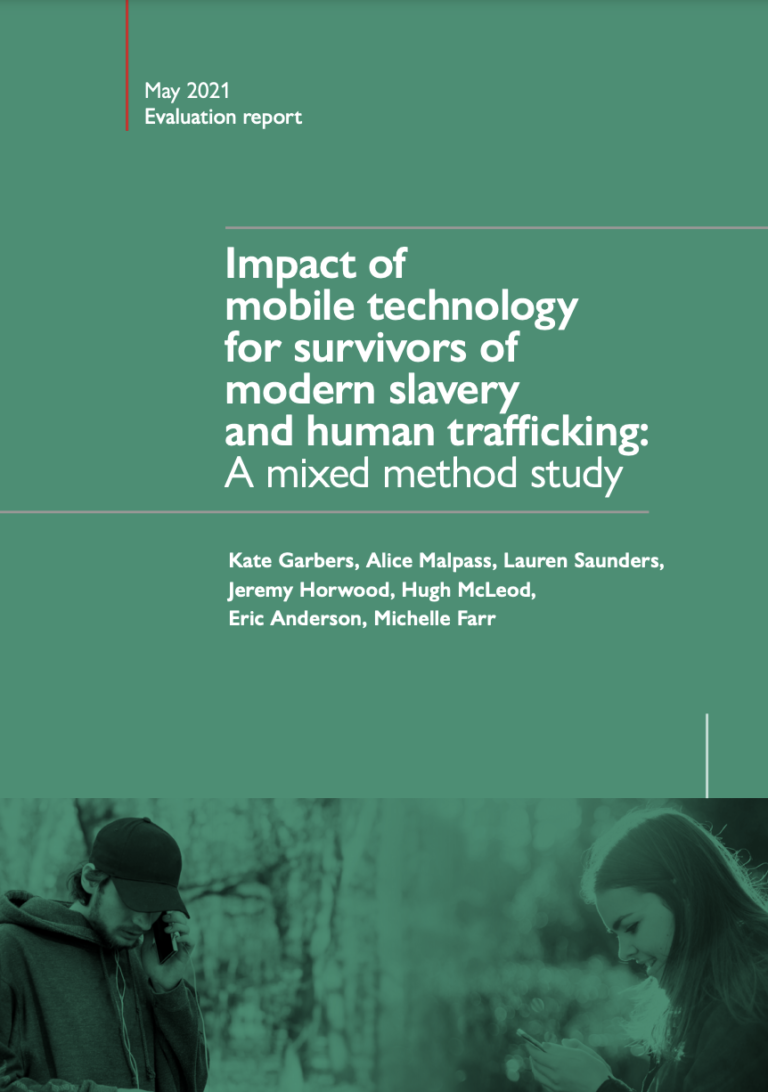Enabling access to online services through mobile technology is an essential need for survivors during the Covid-19 pandemic. It should be considered a feasible and necessary element of survivor support packages outside a pandemic. Further research should explore the viability of government support and optimising of the support package for survivors and support staff.
This collaborative project was a mixed method study aimed at delivering a better understanding of the impacts of mobile technology on survivors of modern slavery and human trafficking. Specific objectives were to:
- Gather and share evidence of the impacts of digital inclusion through mobile technology on survivors’ well-being, access to support and independence.
- Understand the usefulness and impact of the technology from survivors’ perspectives.
- Provide an evidence base that could be used to develop the support offered to survivors in the UK.
The project was conceived before the Covid-19 pandemic by anti-slavery charity Unseen and BT, one of the world’s leading communications services companies, in recognition of the potential of mobile technology to enhance survivors’ recovery; and it was fuelled by on-the-ground experience of survivors and organisations supporting them. The National Institute for Health Research Applied Research Collaboration West (NIHR ARC West) and Elizabeth Blackwell Institute, University of Bristol joined the partnership to evaluate the project.

